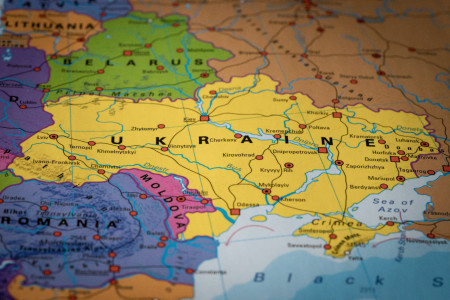
Russia’s ongoing invasion of Ukraine is a humanitarian crisis, with a wide reaching impact on people’s lives and global economies through chronic supply chain disruption. Ukraine’s one of the world’s top agricultural producers and exporters, with yellow fields of grain under a blue sky even symbolised in their national flag.
Since the conflict began, on 24 February 2022, a series of economic shocks have unfolded. With the international supply of key exports restricted or suspended, prices rose sharply causing inflationary pressures on households and central banks raising interest rates, companies suffered under these uncertain conditions and share prices dropped.
And how does this impact my pension savings? In the aftermath of a global pandemic, Russia’s actions created the perfect storm for market volatility. And your pension, like all investments, has not escaped these global shocks and will likely have experienced some turbulence in the past 18 months.
Here’s our breakdown of the domino effect of events from the Russia-Ukraine war in 2022 and how this has, and may continue to, impact your savings in 2023:
Broken supply chains of key commodities
Commodities are basic goods and resources, such as: energy, food, and metals. In the global economy, countries trade commodities with each other. Supply chains are the network that convert raw materials in one country into a consumer product in another. For example, wheat from Ukraine goes through a supply chain to become cereal in the UK.
As supply chains are exposed to different countries, they’re vulnerable to breaking at different points of the process. When supplies are limited, prices go up reactively. Both Ukraine and Russia are leading producers of key commodities, as such their inability to produce goods because of the conflict has created a supply chain blockage at the source.
Supply chain disruption of agricultural goods
As one of the world’s principal grain exporters, Ukraine has an established reputation as the ‘breadbasket of Europe’. In 2021, a year before the war began, Ukraine supplied 9% of wheat, 12% of corn, and 46% of sunflower oil global exports. Another leading grain provider’s Russia. In 2022, the supply of both countries’ agricultural goods were severely impacted.
When the military occupation began, many Ukrainian farms were destroyed and methods of exporting goods were obstructed. On the other side, the international community put Russia under sanctions to reflect its disapproval. While the causes differed, the results were the same - supplies of key commodities were lost from markets and prices started rising.
Europe’s move away from Russian oil
Russia’s the second largest producer of crude oil in the world, after the United States. In 2021, European countries made up more than half of all crude oil exports from Russia, mainly distributed through gas pipelines Nord Stream 1 and 2. Consequently, Russia and Europe were highly dependent on each other, one for income and the other for energy.
After the military occupation, many countries pledged to end or reduce their reliance on Russian oil in an effort to weaken the Russian economy. In reaction, the price of Russian oil dropped suddenly as demand shrunk, while other suppliers raised prices to compensate for increased orders. This pushed the cost of crude oil higher, before supply chains healed.
UK government’s response to high levels of inflation
Inflation’s the rate at which the cost of things goes up each year. Here in the UK, the government measures inflation using the Consumer Prices Index. This compares prices of basic goods and services each year (everything from bread to energy bills). From this, it can understand the change in household costs.
The UK’s central bank, the Bank of England, sets a target of 2% for annual inflation. It’s important for inflation to be stable: both for businesses to set their prices and consumers to plan their spending. Supply chain shocks from the Russia-Ukraine war caused everyday prices to rise dramatically, leading to interventions from the UK’s independent energy regulator, the Office of Gas and Electricity Markets (Ofgem), and the UK’s central bank, the Bank of England.
Ofgem’s price cap in global energy crisis
Since 2019, Ofgem sets a limit on what energy suppliers can charge households for their energy usage. Reviewing wholesale energy prices it adjusts the Energy Price Cap twice a year, usually with new rates taking effect in April and October.
Many households in the UK have seen dramatic rises in their energy bills due to volatile movements in the global wholesale market. This means providers are paying more for gas and electricity, which’s passed on to customers. The energy supply problems have significantly contributed to these higher prices.
Bank of England’s measures under inflationary pressure
Central banks exist to ensure the economy’s healthy and growing. When inflation is too high, they may raise interest rates to lower it. This can take time and have other effects like: making it more expensive to borrow money for a loan or mortgage and better interest rates for cash savings. If inflation and interest rates aren’t controlled, a recession can occur.
After the pandemic, the demand for oil and gas increased as restrictions were lifted. However, the conflict caused a disruption in the global supply of agricultural, energy, and industrial goods from the affected region. As supplies were limited, prices then rose reactively. This created inflationary pressures in the UK and beyond.
Company shares suffer in volatile conditions
Shares are portions of company ownership that are bought and sold on stock markets. There are many events, big and small, that can impact the value of an individual company’s share price. Stock markets reflect broad economic themes: downwards indicates pessimism, upwards signals optimism, and volatile movements up and down suggest uncertainty.
It’s normal for the value of investments to go down as well as up each day as the markets fluctuate. Naturally, it’s most concerning when markets appear to be trending downwards for a sustained period of time. The most severe kind of market downturn’s referred to as a ‘bear market‘. In June 2022, many stock markets announced they’d entered a bear market.
Ripple effect through Europe and beyond
The assault on Ukraine had a swift and severe impact on markets, as they reacted to an unfolding story of economic shocks: broken supply chains, rocketing energy prices, high inflation levels, raised interest rates - all leading to low growth projections and fears of a recession. Many consumers, companies, and countries were left poorer as a result.
In the first six months of 2022, markets were most volatile. However, a slow recovery was underway as companies acted fast to mend supply chains and governments intervened to shield consumers from unaffordable energy costs. Though inflation and interest rates are harder problems to resolve, many European stock markets rebounded a year later.
The winners and losers of 2022
Measuring company performances by industry, only the energy sector experienced significant growth last year. The geopolitical uncertainty over energy supply led to soaring prices. In the S&P 500 Index, energy producer Occidental Petroleum was the best performing US company in 2022, with a 115% rise in its share price.
One of the hardest hit industries has been the technology sector. Companies reliant on consumer spending often suffer the most during economic downturns. In the NASDAQ Index, fintech loan provider Affirm Holdings was the worst performing US company in 2022, with a 90% fall in its share price.
The invasion of Ukraine’s impact on PensionBee investments
It should be noted that other global events contributed to 2022’s volatility, such as ‘zero COVID-19 policy’ lockdowns in China, disastrous floods in Pakistan, and political instability in the UK. However, Russia’s attack on Ukraine remained a significant influence on stock markets throughout last year. And while the present day shows clear signs of recovery on all fronts, the scars of this run deep.
Is the ongoing conflict in Ukraine affecting my pension balance?
When you invest in your PensionBee plan, by transferring old pensions or making [contributions]/uk/contribute), you’re buying units in a diversified fund. If you own 100 units in your plan and each unit is worth £1.25, then your pension balance is £125. So, if the unit price drops to £1.10 and you have 100 units, your pension balance becomes £110.
Remember, unit prices go up as well as down, and reflect the health of the market on any given day. The principle is, that if the value of the underlying companies you’re invested in fall, then the value of your plan falls too. Where the money ‘goes’ is that your portion of that company has decreased in value and the value of the unit price goes down with it.
In 2022, a mixture of geopolitical struggles, high inflation, and supply chain issues created the perfect storm of market volatility, which impacted both company shares and bonds. Consequently, the value of your units in 2022 may have gone down. As this is a global issue, transferring to another provider won’t recover your market losses.
How exposed is my PensionBee pension to Russia?
As of writing, our Fossil Fuel Free, Shariah and Preserve Plans have no exposure to Russian companies. While our Tracker, 4Plus, Pre-Annuity and Tailored plans have minimal exposure to Russia - less than 0.4% to be precise. However, our pension plans do continue to be impacted by the global stock markets’ turbulence since the onset of the war.
Have a question? Get in touch!
If you’re a PensionBee customer, you can read our Top 10 holdings in your pension blog to discover the companies your plan’s invested in, or visit our Plans page to see what investment types and locations your pension’s spread across. You can always send comments and questions to our team via engagement@pensionbee.com.
Risk warning
As always with investments, your capital is at risk. The value of your investment can go down as well as up, and you may get back less than you invest. This information should not be regarded as financial advice.




